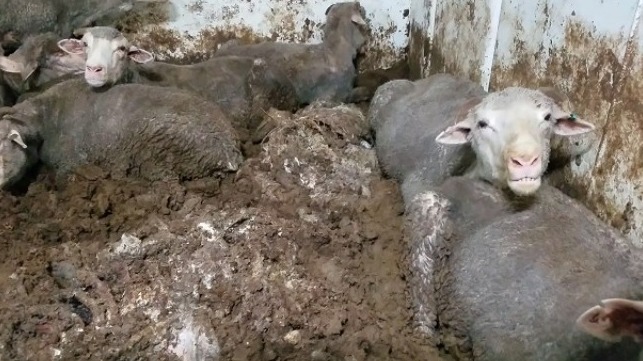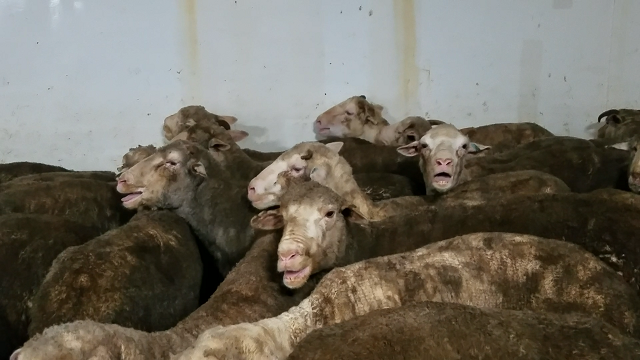Australia Lets Twin-Tier Livestock Carrier Sail

The Australian Government has decided to allow the live sheep export ship the Maysora to load 30,000 sheep and sail to the Middle East. The Maysora, built in 1989, is one of a few twin-tier ships set to be banned from trading in Australia by the Australian Maritime Safety Authority.
The decision to allow the vessel to sail comes as the RSPCA reveals it is awaiting the results of a Freedom of Information request to access images and footage captured on board live sheep export ships, since the government began placing departmental observers on board in April.
“Despite government and exporter assurances of improved conditions, we’ve seen no information, photos or footage from those observers, and that’s very worrying,” said RSPCA Australia Senior Policy Officer Dr. Jed Goodfellow.
The Government is also still awaiting the outcomes from three reviews into the adequacy of the Australian Standards for the Export of Livestock, the Heat Stress Risk Assessment model and the Department of Agriculture’s ability to regulate the trade.
“Approving further shipments into the Middle Eastern summer before receiving this critical advice is simply reckless and shows that the Government is yet again willing to place exporter profits before animal welfare,” says Goodfellow. “Let’s not forget, in May this year the Australian Veterinary Association gave the Government very clear advice that exports to the Middle East should not occur between May to October because sheep will remain susceptible to heat stress and die due to the extreme climatic conditions.
“This advice was consistent with the outcomes of the recommendations made by Dr. Michael McCarthy, but instead of acting on these recommendations, the Government has opted for ‘further testing and consultation’ all the while continuing to approve further export permits.
“It is also important to note that the export company involved, Livestock Shipping Service, bowed out of the trade for the past few months." Goodfellow alleges that this was because the company couldn’t meet new animal welfare standards while still making enough of a profit and that the company unsuccessfully applied for an exemption to those new regulations for this shipment.
He says. “The fastest and strongest reaction we’ve seen from our supporters in the past six months was when the Maysora was allowed to leave under cover of darkness with no tangible improvements to onboard conditions, just a few days after the horrific Awassi Express footage was aired on 60 Minutes.
“At that time, The Sunday Times reported that before the ship had even left port, government officials found ‘... sheep couldn’t lie down without being trampled and could not access food and water. Some water troughs were empty, and many were heavily contaminated with faeces. Sheep had got out of their pens and were in raceways and stair wells, with at least two dead sheep observed.'”
More than 300 sheep would have to die on the Maysora's shipment before an investigation is triggered.
Earlier this month, a bill proposing a live export ban was squashed. Pivotal in the vote was Liberal MP Sussan Ley who, despite speaking out against the trade earlier in the year and introducing a private member's bill, voted against another such bill. The votes of Ley and fellow MP Sarah Henderson meant the bill was defeated, 70 versus 72.
In May, Ley said: “The litany of animal cruelty in the live sheep trade makes a mockery of the industry’s 'no fear no pain' mantra. If the rules were actually enforced – access to feed, water and rest, avoiding high heat stress, no commercial operator would undertake the trade. Exporters have explained to me that it would not be viable. Unfortunately this is an industry with an operating model built on the suffering of animals.”
In September, she said: “There are two different ways of arguing your case, and it’s important to distinguish between the two. I didn’t necessarily expect my private member’s bill to pass the House. This is very similar to the gay marriage debate. The gay marriage debate saw many private members’ bills, for a range of different circumstances, sponsored by different members of parliament, but they all helped on the road to the result. A private member’s bill causes discussion and debate. That marker on the road to reform has been very strong and very important.”

